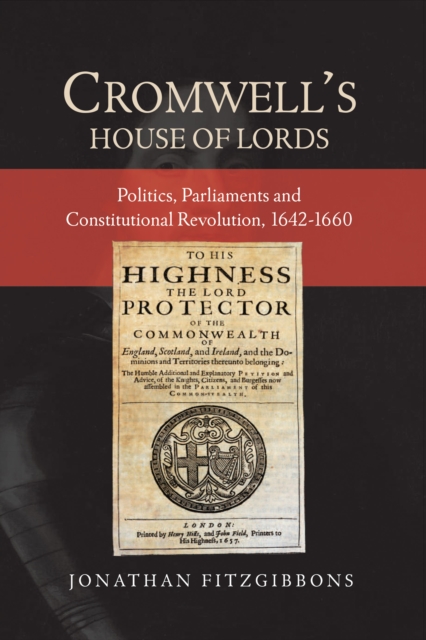
Cromwell's House of Lords : Politics, Parliaments and Constitutional Revolution, 1642-1660 PDF
by Jonathan Fitzgibbons
Part of the Studies in Early Modern Cultural, Political and Social History series
Description
The final years of the Cromwellian Protectorate are usually written off as a brief interlude on the inevitable road to Restoration. This book galvanises this forgotten period of Interregnum studies by providing the first thoroughstudy of the Cromwellian 'Other House' - a new upper parliamentary chamber of nominated life peers created in 1657.
Despite the execution of Charles I and the establishment of a kingless republic, the period of the English Civil Wars and their aftermath is rarely described as one of constitutional revolution. The notion that the 1650s were politically conservative is exemplified by the tendency of historians to fixate upon the offer of kingship to Oliver Cromwell and his increasingly monarchical appearance. This book rethinks the political history of the 1640s and 1650sby focusing instead upon the upper parliamentary chamber. Besides exploring changing attitudes towards the House of Lords during the Civil Wars, and the circumstances that led to its abolition in 1649, it provides the first thorough study of the Cromwellian "Other House" - a new upper parliamentary chamber of nominated life peers created in 1657. Jonathan Fizgibbons demonstrates how the Other House was much more integral to Cromwell's aims for a lasting post-war settlement than the offer of the Crown. More broadly, this book reconceptualises the political and constitutional history of the 1640s and 1650s by looking beyond outward forms of government and visual culture. It argues that radical shifts in political thought were concealed by apparent continuities in forms of government. Even though the new Cromwellian upper chamber had the familiar appearance of a House of Lords, the very meaning of the House of Lords was contested and transformed by the experience of the Civil Wars and their aftermath.
JONATHAN FITZGIBBONS is Lecturer in Early Modern History at the University of Lincoln.
Information
-
Download - Immediately Available
- Format:PDF
- Pages:285 pages
- Publisher:Boydell & Brewer Ltd
- Publication Date:20/04/2018
- Category:
- ISBN:9781787442337
Information
-
Download - Immediately Available
- Format:PDF
- Pages:285 pages
- Publisher:Boydell & Brewer Ltd
- Publication Date:20/04/2018
- Category:
- ISBN:9781787442337






